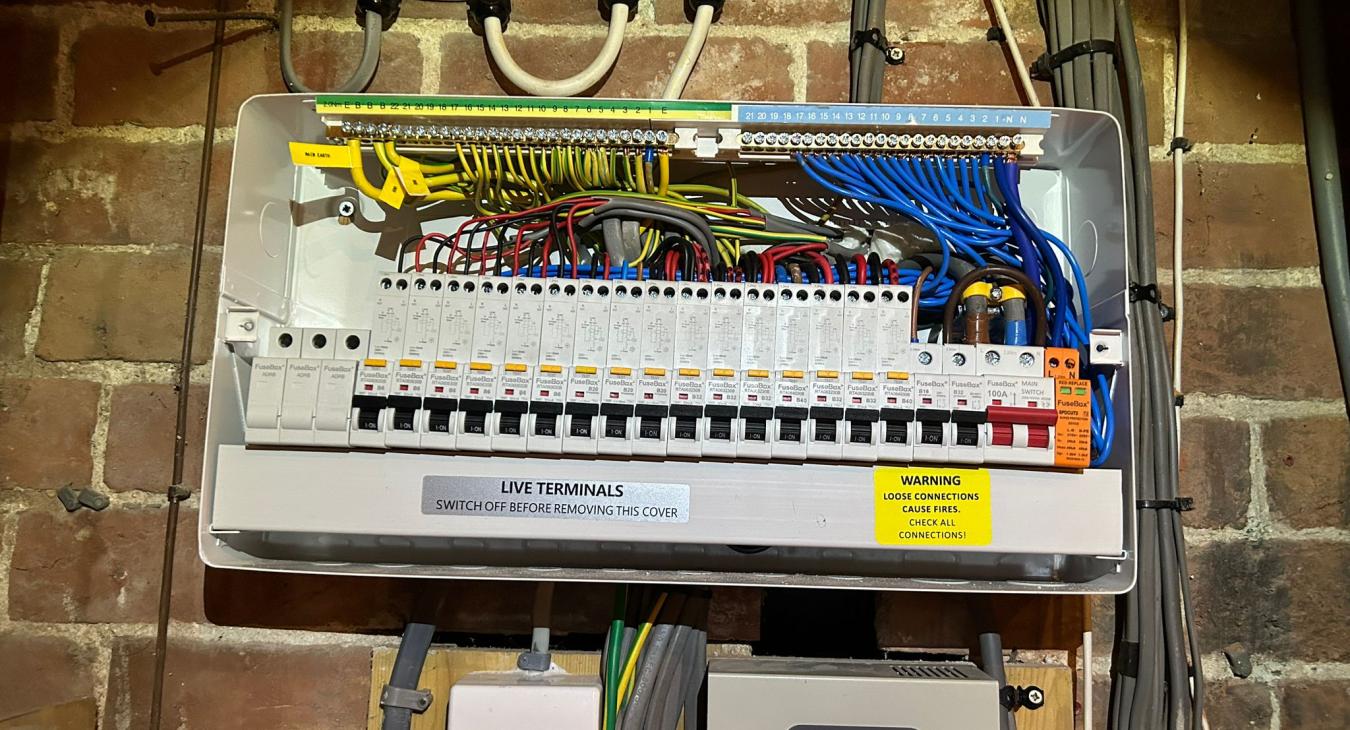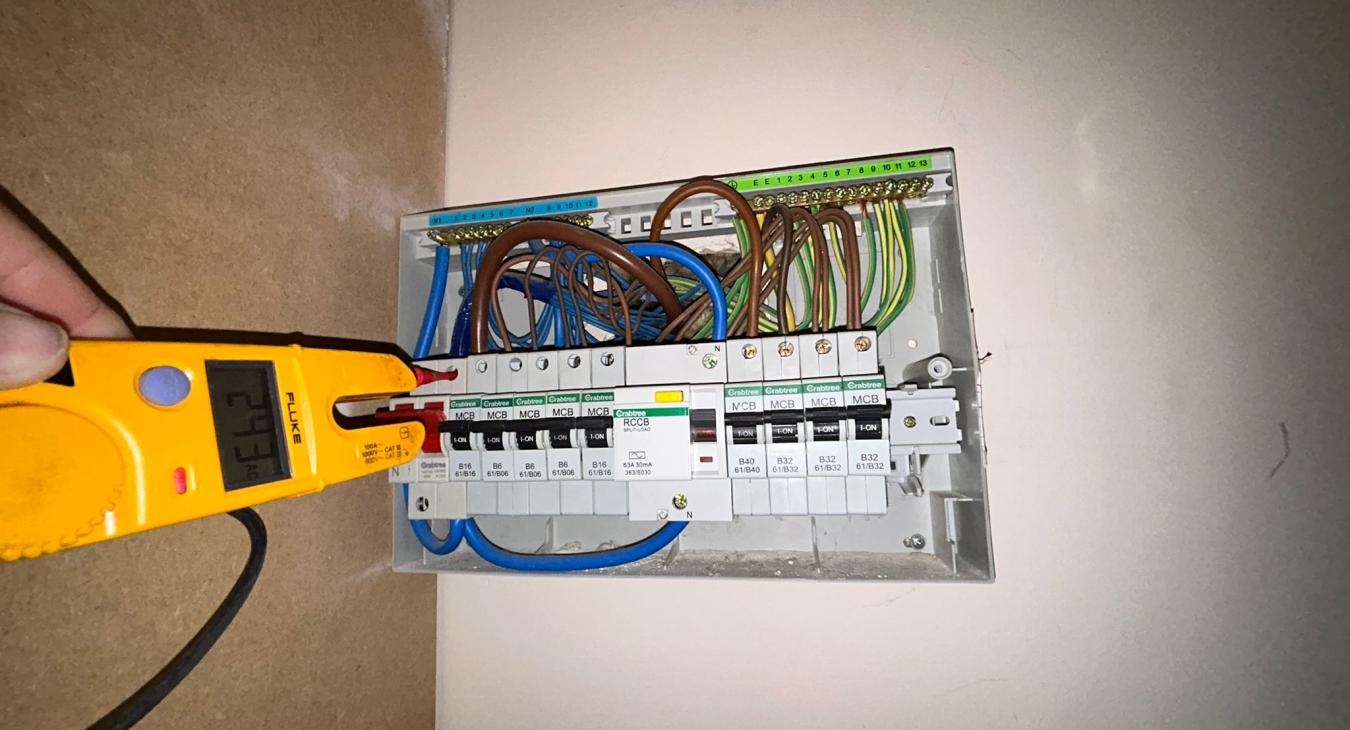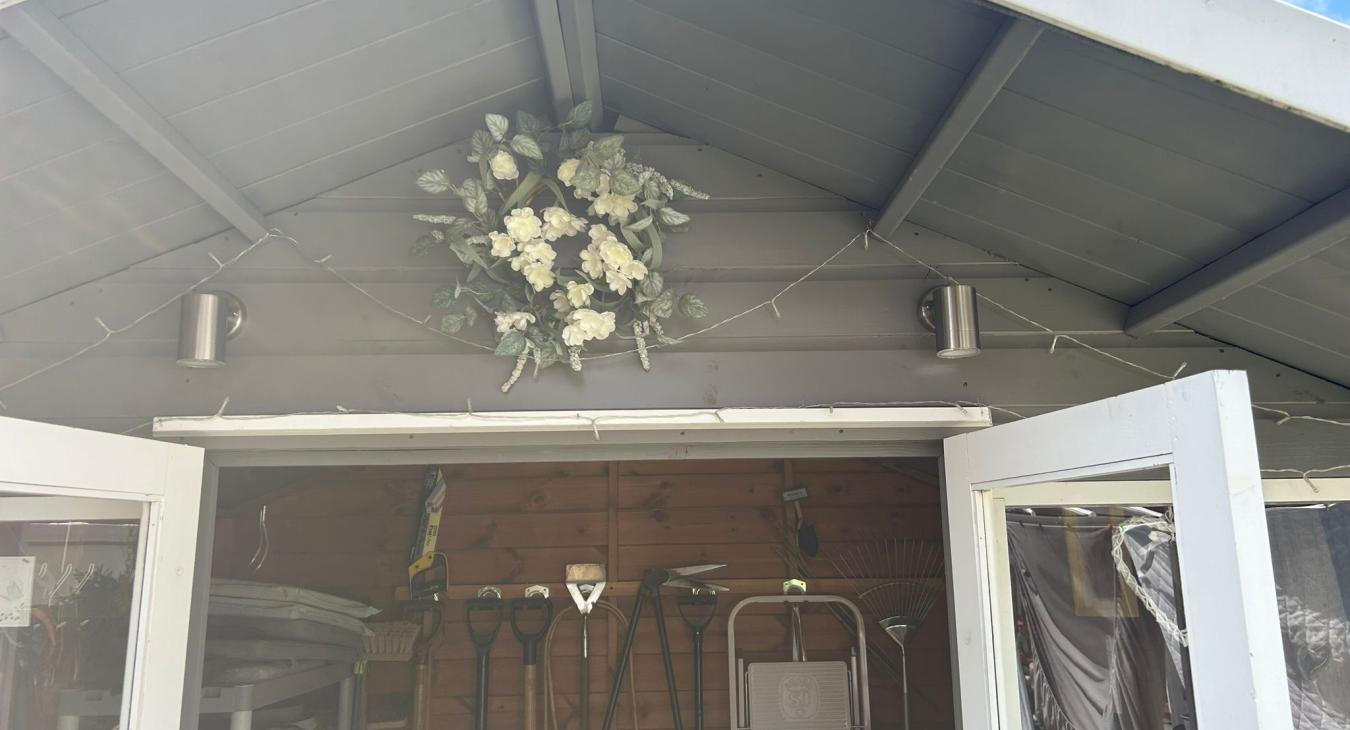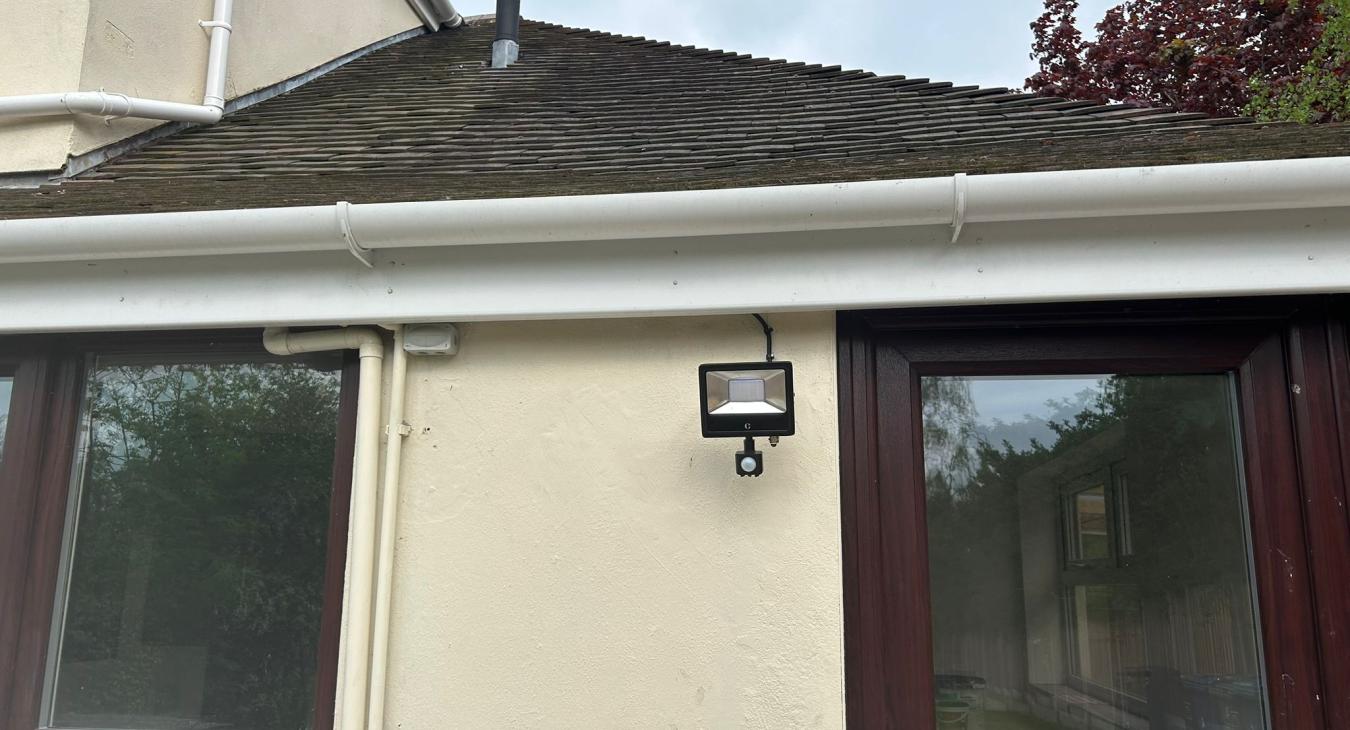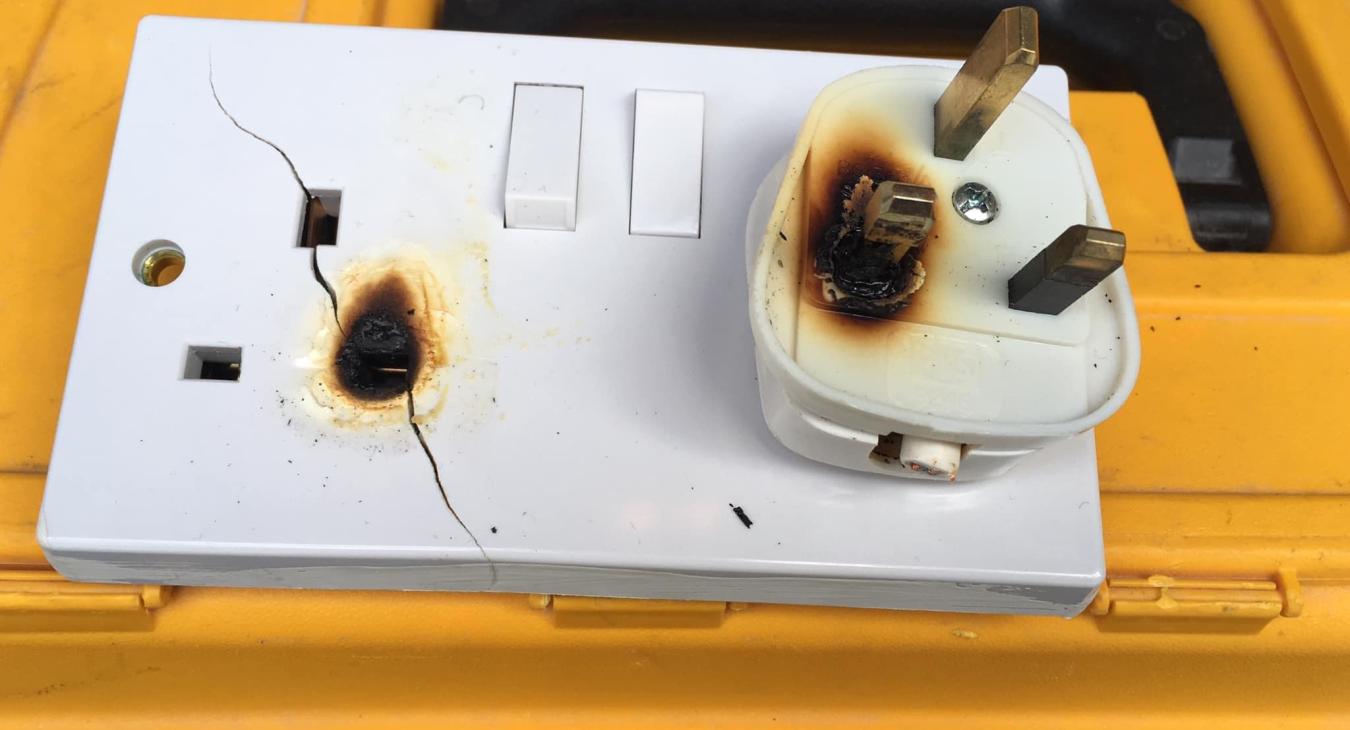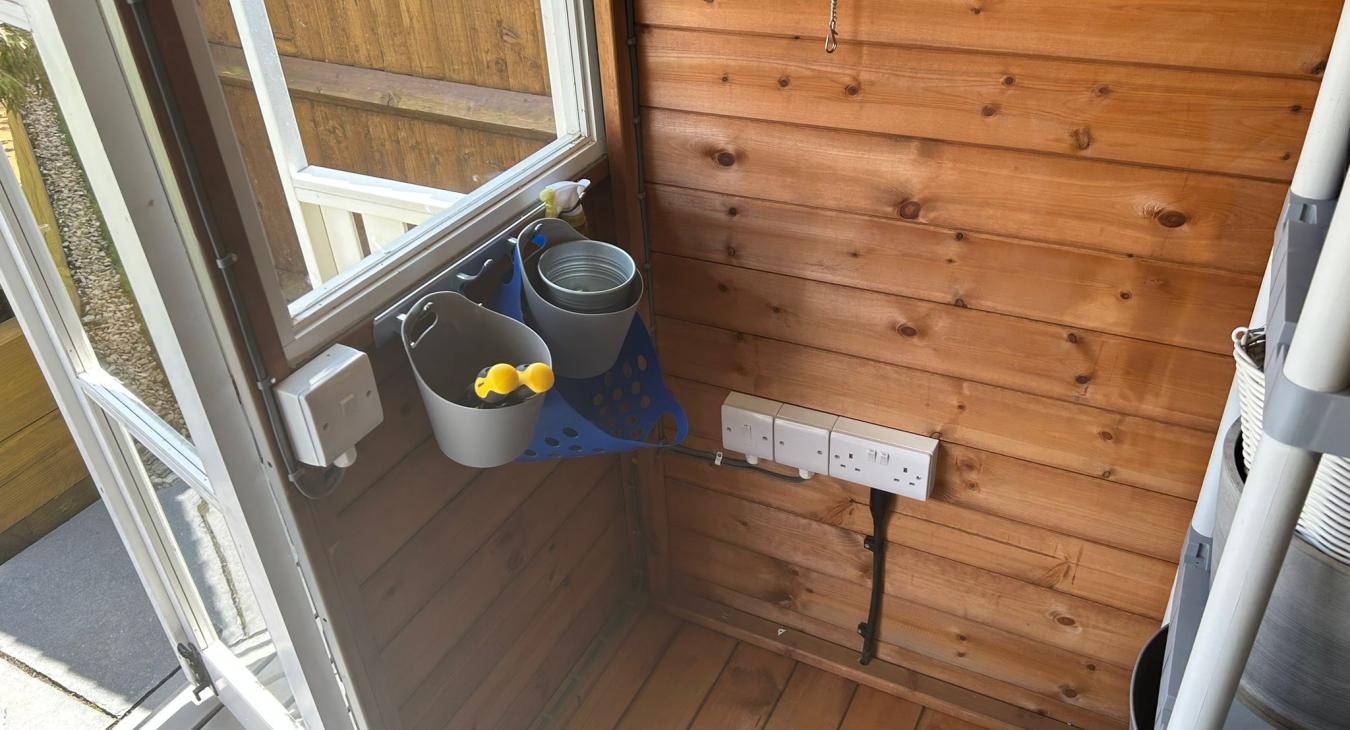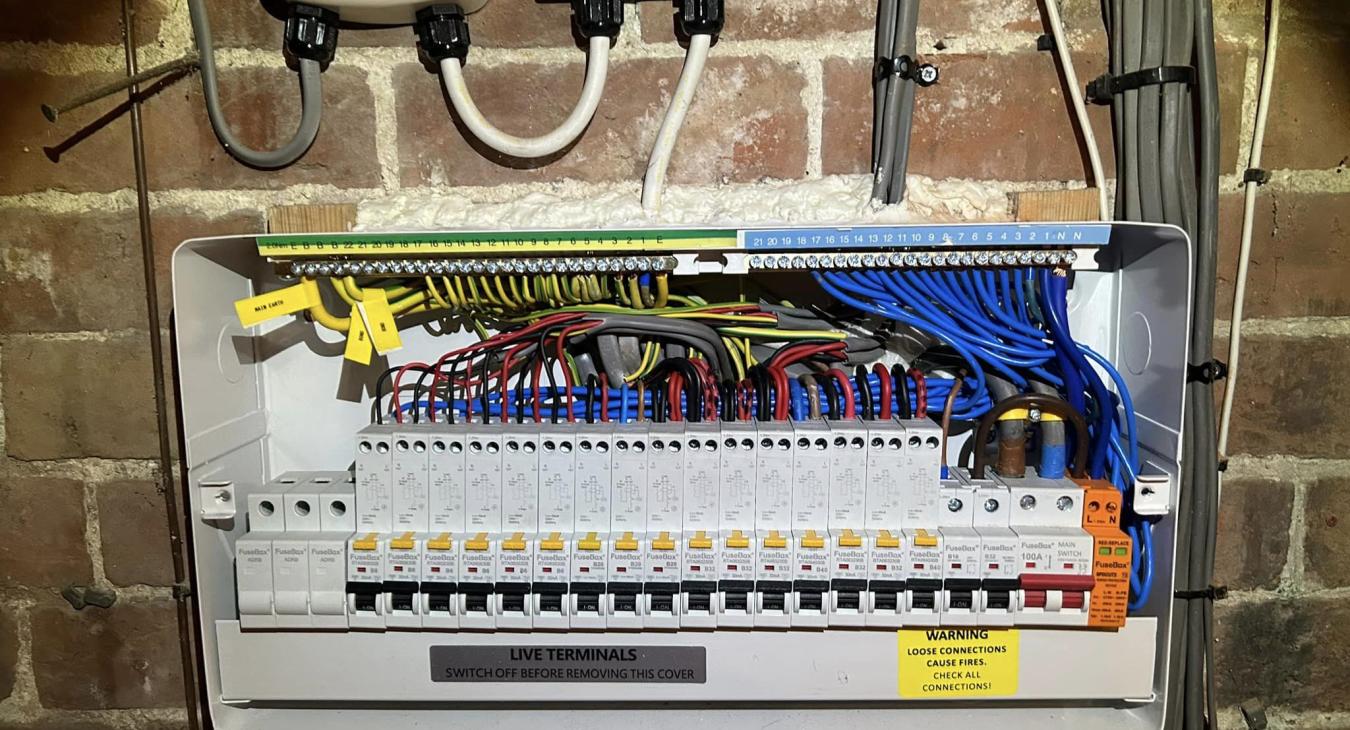Do you think it's necessary to replace the fuse-box/consumer unit in your Cannock home?
Replacing the consumer unit or fuse board is a significant task that may not be as straightforward as it seems. If you have any questions about this matter, we aim to address them below.
Prior to any consumer unit upgrade, we highly advise conducting an Electrical Inspection. This inspection will generate an EICR (Electrical Installation Condition Report).
We highly recommend conducting an Electrical Inspection prior to a consumer unit upgrade. This helps identify and address any potential safety issues or faults in your home's wiring system before installing the new consumer unit or fuse board.
Modern consumer units have advanced technology that can detect problems which older units cannot. If there are any issues, the new consumer unit will refuse to turn on. It is essential to discover and fix these issues beforehand, as the affected circuits would need to remain disconnected until resolved.
At present, the applicable wiring regulations are BS7671 18th Edition Amendment 2. We ensure that all our work complies with the latest edition of these regulations, guaranteeing cutting-edge safety and technology in your home.
We exclusively use consumer units with RCBO devices, which are superior to dual RCD devices. With RCBOs, any future faults can be easily identified to the specific circuit, minimising inconvenience. In contrast, dual RCD boards, although cheaper, can potentially affect half of your home during a fault, such as a cooker circuit malfunction.
As a standard practice, we install Surge Protection to safeguard your home's wiring and appliances against over-voltages and electrical surges.
That's enough technical information for now! If you have further questions, feel free to contact Jordan Electrical Services - Your Local, Trusted, Skilled Electrician in Heath Hayes, Cannock.
